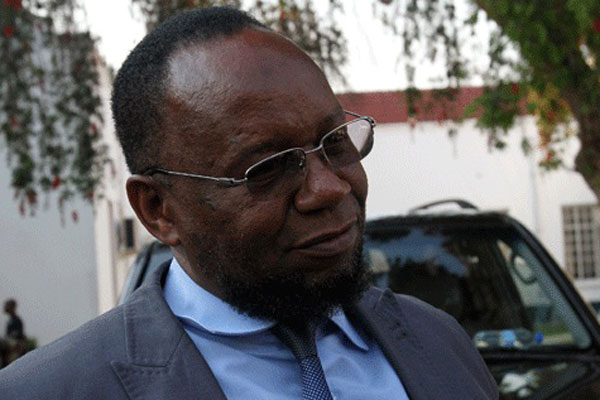
Education minister Lazarus Dokora has once again displayed a shocking lack of understanding of the importance of the mother tongue in learning, particularly in primary education, betraying his lack of depth in running that ministry.
Responding to a question in Parliament on pupils’ failure, particularly in Matabeleland and Midlands, Dokora said there was no relation between the poor pass rates and language differences.
The context of the question was that in Matabeleland and Midlands there had been an outcry that pupils were not performing to desired levels, with one of the reasons being that there was a breakdown in communication between the learners and teachers due to language differences.

Instead of looking into the merits of the question, Dokora chose to be contemptuous of it all, claiming offhandedly that there was no correlation between language and passing.
Thankfully, Dokora is not the only fountain of knowledge and research has revealed the importance of pupils learning in local languages if they are to perform to expectations.
A report by the United Nations Educational, Scientific and Cultural Organisation (Unesco) to mark International Mother Tongue Day yesterday has reiterated the importance of pupils being taught in their mother tongue, pointing out that in cases where they were taught in foreign languages there was a likelihood for failure.
Given that the Zimbabwean education system is in English, the next best thing would be having a teacher conversant in the predominant local language working in that area so that when a pupil fails to understand a concept, educators can break it down to them in the local dialect.
That way, pupils can relate what they learn to their surroundings and understand better, rather than a scenario where there is an impasse between the learners and the teachers, which is detrimental to education.
- Chamisa under fire over US$120K donation
- Mavhunga puts DeMbare into Chibuku quarterfinals
- Pension funds bet on Cabora Bassa oilfields
- Councils defy govt fire tender directive
Keep Reading
The Unesco report explicitly states that teaching in a language that is not spoken by the learners frequently holds back a child’s learning, particularly for those living in poverty.
While Dokora can posture and say there is no relation between pass rates and language, unimpeachable academic evidence points to the contrary and these are recommendations that the Education ministry should look into seriously.
Dokora’s self-serving and contemptuous attitude does not do pupils any favour, instead it retards their growth. We appreciate that there are now teachers being trained in languages such as Nambya and Tonga, but this is not enough unless there is a deliberate policy to ensure that they are deployed to where their skills set is needed and not just anywhere because they have teaching certificates.
The Unesco report also points out that at least six years of learning in a mother tongue is needed to reduce learning gaps for minority language speakers and that imposing a dominant language through a school system frequently has been a source of grievances linked to wider issues of social and cultural inequality.
Without belabouring the point, there have been a number of stories, particularly in Matabeleland, where parents have sought the expulsion of teachers who do not speak the local language.
Instead of making a blanket statement accusing the said parents of discrimination and tribalism, it is important that education authorities engage them and seek a way forward. As parents are stakeholders, who pay for a service, they should be allowed to demand only the best for their children.
In crafting education policies, Dokora and his team are best advised to adopt Unesco recommendations, which say these guidelines should recognise the importance of the mother tongue in learning.











